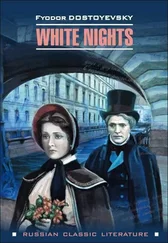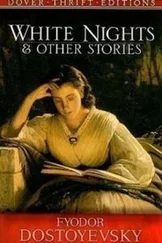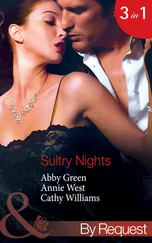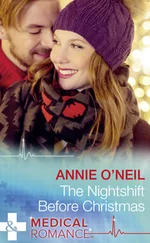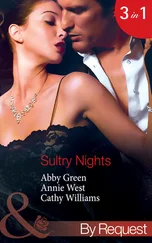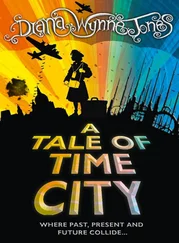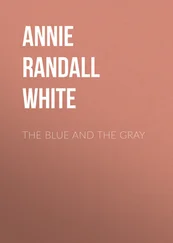A pack of teenagers gathered on the bench next to Mother. For a moment I feared they would recognize her. Mother pulled her coat up around her face. I heard the crack of beer bottles where the teens hurtled them across the tracks. I was attracted to the violence of it. It reminded me of a gun going off. For months, Mother had kept the small television in the kitchen on the news. She was ready to be moved by a national story. I often wondered if she was searching the stations for her old flame.
When the teens had wasted all the bottles they started kicking around a hacky sack. I smelled smoke in the air and heard the familiar sound of a sack of beads where they lifted it from the ground. The bag landed not far from where Mother was standing. Mother shifted her weight. I remembered a story she had once told me about riding her bike to work one summer as a teenager when she worked the obit column for the Schenectady news. The city center was bustling and notoriously congested. She’d realized at once that her own survival depended on her ability to keep going. “It didn’t help to stop amid traffic,” she’d said.
A deafness gripped me as the train’s engine halted. The conductor threw wide the steel door and descended the tracks. A scream erupted at the back of my head and flooded my eyes in one weightless, arid rush. I found myself opening my mouth and forming a hollow at the back of my throat as if I were about to release a long vowel sound the way Mother would when she reached for the high notes at church.
“All aboard, Ma’am,” the conductor called into the darkness.
Mother clung to the railing as she mounted the stairs. It seemed as though her body hardly belonged to her.
The morning after Mother’s departure no one woke before noon. Father fumbled in the kitchen with bowls and boxes of cereal. Birdie and I poured glasses of juice. The three of us ate in the living room. Father put paper down on the carpet so Birdie and I could sit close to the television.
At that hour, the light coming through Mother’s windows was strong. It cast a glare on the screen. Father papered over the window nearest the television with a few sheets of newsprint and some tape, shading the box so we could see.
It was break-back hour. By then we were Otto’s boarders at the barn. Father’d bought that gelding that Otto had been telling him about. A flighty little Arabian. Not much more than fourteen hand. Green as hell. Still trying to throw the saddle. Otto called the horse The Sheik on account of his nervous side and his four white socks. “Reminds me of one of those Sultans over there in the Gulf. Nothing more than a bunch of snake tamers and criminals.”
“Now that’s the beginning of a good animal,” he’d said of The Sheik the first time we saw him. “Headstrong. With a dose of healthy athleticism.” It had been Sunday and raining. Father had driven the Bronco into the paddock where the trainer was lunging The Sheik on a long orange lead. In place of a vet, Otto had come with us to examine the animal and shake out any shadiness. The only thing that mattered, he’d said, was how a horse trotted out. The rest could be trained away or treated. “Horse people,” he’d assured us in the car on our way to the stable. “Shy as hell the whole lot of them. Dog trainers. Now those bastards’ll bury you in the quick.”
After the trainer had trotted the horse several laps around the paddock, Otto got down on one knee and flexed the horse’s front hoof in his hands, bending the joint back at the pastern. The bottom of the horse’s nail touched the tip of his leg where the hair shot out. He held the horse like this, putting some strain into the joint.
“Lame as a carriage horse,” Otto had said to the trainer. “How much to take this dog food off your hands?”
As it turned out, The Sheik was a gravedigger. No space was large enough to appease him. At home in the pasture, he crawled the fences, circling the lot all day as if running the track. In the stall, he pawed furiously. We had to pad the clay floor with mats which stank each morning from the pools of urine. The only place where the shake settled from The Sheik’s muscles was when you took him out on the trail. Confined by the brush and the branches, his body hurtled toward the opening in the trees as he steadied into a forward throttle.
The Sheik’s was the only profile missing from the lineup the morning after he arrived at Otto’s stable. When Father started into his stall for the bucket, The Sheik was hovering near the window, nosing at the rusty grate. His coat was matted and salted. The previous day’s sweat had dried into peaks of crusted fur. The sill was thick with flaking paint and dried pigeon droppings. He licked the grate for salt.
“Knock on Otto’s door,” Father said. “Ask him for a carrot and a bottle of molasses. Anything sweet, if he has it.”
Otto was a hobby man. What few interests he’d stumbled across in life, he wasn’t apt to part with. Even the old junk he didn’t quit easily. His porch was nearly full with broken machinery, stray chairs and random board games. An array of hulahoops and a pair of roller skates sat in the corner, amid the wicker porch furniture covered in a thin green mold.
A plastic hobbyhorse hung from the bike rack. Missing its spring, the horse pitched back and forth whenever you opened the screen door. “Callie” was spray-painted in silver script on its rump.
Wilson answered my knock.
“In here,” he said in the odd hollow way his voice sounded once he got the words out.
I could smell His Helene from the doorway. Her stench had a full-bodied clinginess to it. The minute I entered the kitchen it invaded the inside of my nose and stuck to the fronts of my teeth so that when I ran my tongue along them, I tasted an acrid decay that I couldn’t stop nursing on despite the impulse to retch. Even the kitchen itself smelled like an armpit after a night of anxiety and sleeplessness, a mixture of sweet onion and old wound.
His Helene had her tail up. The house was in heat. Everyone in it was facing death ass-first to the wind. The haze of morning hadn’t yet lifted. The curtains were drawn and the windows were open. What little light there was in the room existed only when the wind blew open the drapes creating nervous patches of light on the wallpaper. If it weren’t for the glow of the switch on the coffee pot, I would’ve thought I’d woken someone.
“Bath time,” Wilson said.
His Helene emerged from the bathroom. She appeared no thicker than one of the strips of light on the wall. There was so little left of her to hold on to that Otto seemed to carry her without notice, her arm draped over his shoulder as her feet dragged beside him on the carpet. Her frame could’ve easily been mistaken for a trick of the eye created by some movement of the curtain. Her gown hung open exposing several growths on her back which reminded me of the way roots stretch when the earth starts to erode: shallow, spread thin for air.
“What you lookin’ for, Petunia?” Otto called over his shoulder to me as he steered His Helene toward the bed that opened out from the couch.
“Sweet stuff,” I said. “The Sheik’s off his food.”
“In a minute,” Otto said. “Give me a hand.” His Helene never said, “Hi love.” Or, “Come join us baby.” What she said was, “So, you think you can play. Otto says you think you can play me a sonatina.”
“You’ve got your rot on, Helene,” I said. Her bed overlooked the south pasture where Father helped Otto bury the old Shetland. The south pasture got the afternoon light. “Wake me up when I’m bronzed,” she said.
“My Helene,” I said. “You’re crispier than burnt bacon.” Really, it was the jaundice. She was nearly glowing with it. “A slow leak,” Otto Houser explained it. “Hole in her stomach.”
Читать дальше
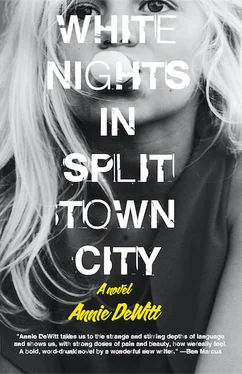
![Элизабет Ленхард - Свидание со смертью[Date With Death]](/books/79651/elizabet-lenhard-svidanie-so-smertyu-date-with-dea-thumb.webp)



